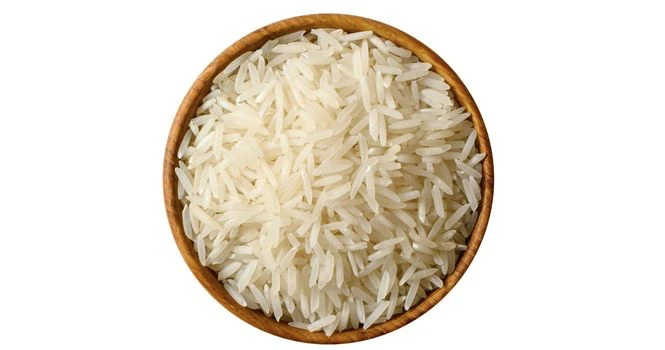The Surprising Health Benefits of Fish Eggs: Why You Should Try Them

What are Fish Eggs
Fish eggs are the tiny eggs that fish produce. They are similar to the eggs that birds lay, but much smaller and often found in water. These eggs are how fish reproduce, with the mother fish laying eggs that then hatch into baby fish.
In addition to being important for the life cycle of fish, these eggs are also eaten by people. They come in different types and sizes, and you might know some of them as caviar, which is a special kind of fish egg that’s often seen as a fancy or expensive food.
Fish eggs aren’t only delicious; they’re also packed with beneficial nutrients. They’re rich in protein and omega-3 fatty acids, both of which are essential for your health. These eggs are versatile in cooking and are widely enjoyed in numerous culinary traditions around the globe.
Fish Egg Benefits

Fish eggs, like caviar and other types, are not just a fancy food; they are also quite nutritious. Here are some of their benefits:
1. Rich in Nutrients: Fish eggs are packed with important nutrients. They have a lot of protein, which is good for building and repairing your body. They also contain vitamins like vitamin B12 and vitamin D, which are important for your energy levels and keeping your bones healthy.
2. Omega-3 Fatty Acids: One of the best things about fish eggs is that they are high in omega-3 fatty acids. These are really good fats that help your brain and heart stay healthy. They can also be good for your skin.
3. Low in Calories: Even though they are small, they are low in calories. This means you can enjoy them as part of a healthy diet without worrying too much about gaining weight.
4. Good for Your Brain: Because of the omega-3s and other nutrients, they are great for your brain. They can help you think better and even improve your mood.
5. Source of Minerals: They contain minerals like iron, magnesium, and selenium. These are important for keeping your body running smoothly, like helping with your energy levels and making sure your immune system is strong.
Fish Eggs Disadvantages
While fish eggs can be nutritious and offer several health benefits, there are also some disadvantages or things to be cautious about:
1. High in Sodium: Some types of fish eggs, especially those that are processed like caviar, can be high in sodium (salt). Too much sodium in your diet can lead to health problems like high blood pressure.
2. Allergic Reactions: Some people might be allergic to fish eggs. If you have a fish allergy, it’s likely you’ll be allergic to fish eggs as well. Eating them could cause an allergic reaction, which can be serious.
3. Heavy Metals and Contaminants: Fish eggs can sometimes contain contaminants like mercury and other heavy metals, especially if they come from polluted waters. These substances can be harmful to your health, particularly for pregnant women and young children.
4. High Cholesterol: Fish eggs have cholesterol. While they also contain healthy fats, it’s still important for people with cholesterol-related health issues to eat them in moderation.
5. Sustainability Issues: Some fish egg harvesting practices can be unsustainable and harm fish populations. It’s important to choose fish eggs from sustainable sources to help protect ocean life.
Remember, the key is balance and moderation in your diet. If you enjoy fish eggs, it’s a good idea to have them occasionally and in small amounts, especially if you have specific health concerns or dietary restrictions.
Is Fish Eggs Good for Weight Loss?
They can be a part of a weight loss diet, but like any food, they should be eaten in moderation and as part of a balanced diet. Here’s why they can be beneficial for weight loss:
1. High in Protein: They are a good source of protein, which is important for weight loss. Protein can help you feel full longer, reducing the likelihood of overeating.
2. Rich in Omega-3 Fatty Acids: The omega-3 fatty acids in fish eggs can have various health benefits, including potentially aiding in weight loss. Omega-3s can help regulate metabolism and may have an impact on body fat, especially when combined with exercise.
3. Low in Calories: Depending on the type, fish eggs can be relatively low in calories, making them a good choice for a low-calorie diet.
However, there are also factors to consider:
1. High in Sodium: Some processed fish eggs, like caviar, are high in sodium, which can lead to water retention and bloating. It’s important to consume them in moderation.
2. Cholesterol Content: For those watching their cholesterol intake, be mindful that fish eggs do contain cholesterol.
3. Portion Control: Because they are often eaten in small quantities, they’re unlikely to contribute significantly to satiety, so it’s important to balance them with other nutritious foods.
Frequently Asked Questions
What Is the Difference Between Caviar and Fish Roe?
Caviar and fish roe are terms that are often used interchangeably, but there is a difference between them:
1. Fish Roe: This is the general term used for any kind of fish eggs. Roe can come from all kinds of fish, like salmon, trout, or herring. It’s basically the eggs that are harvested from the fish and can be used in various dishes. Roe is often less expensive and more widely available than caviar.
2. Caviar: Caviar specifically refers to the roe from sturgeon fish. It’s considered a delicacy and is often more expensive than other types of fish roe. Caviar has strict standards for how it’s processed and prepared, and its quality and price can vary greatly based on the type of sturgeon, the processing method, and where it’s from.
So, in simple terms, all caviar is fish roe, but not all fish roe is caviar. Caviar is a specific type of fish roe that comes only from sturgeon and is known for being a luxurious and expensive food item. Fish roe from other types of fish is generally more accessible and used in a wider range of culinary dishes.
![]()












